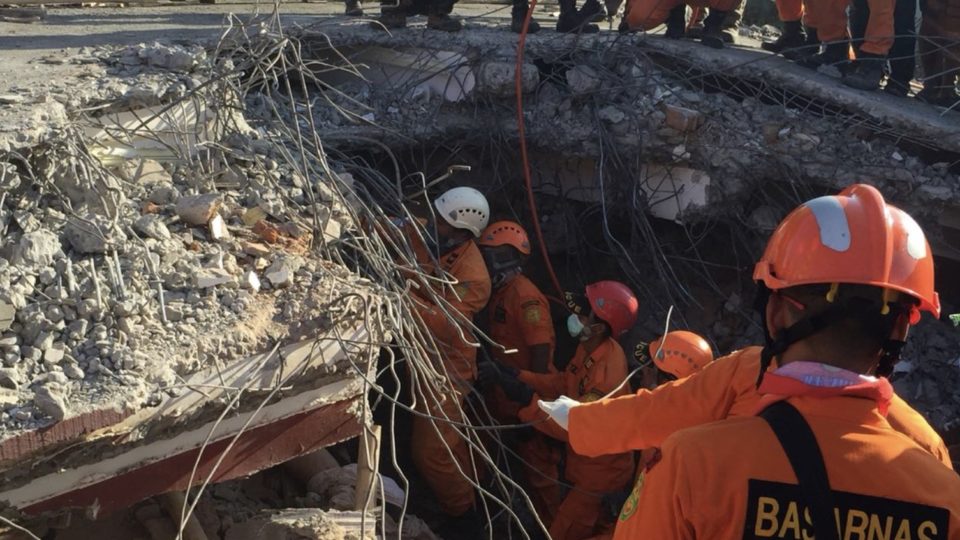The government has set a three-week state of emergency period to respond to the 7.0-magnitude earthquake that rocked Lombok this past Sunday.
The quake’s death toll has been slowly inching up as rescuers find more and more victims under debris. The number of victims is currently set at just over a hundred, with hundreds more injured, and thousands more forced to evacuate.
Many survivors on the Indonesian island, especially in North Lombok where the earthquake hit the hardest, are left without power, access to clean drinking water, and stable, reliable shelter–an issue as aftershocks continue to pulsate through the island.
“The most important thing is the emergency response, after that rehabilitation and reconstruction,” said Indonesia’s second-in-command, Vice President Jusuf Kalla.
“According to the governor (of Lombok), 70 percent of North Lombok’s buildings were damaged,” Kalla said on Monday, as quoted by Republika.
The government has mobilized the National Disaster Mitigation Agency (BNPB) and the national military, directly deploying personnel in response to the earthquake.
The Indonesian Red Cross (PMI) has also been actively working alongside the government to provide relief in the form of setting up health posts and sending out water tanks in areas heavily impacted by the earthquake.
A few but dedicated NGOs and community members have also mobilized, raising funds to support affected communities and deliver supplies.
“The emergency response period is three weeks. After the three weeks, we will transition to the recovery process,” Indonesian Tourism Minister Arief Yahya explained in Jakarta on Tuesday.
As for tending to the many tourists, the government’s priority during this emergency period is evacuating visitors out of Lombok during this three-week span, says Yahya.
Over 1,000 tourists, foreign and domestic, were evacuated from the popular Gili islands off the northwestern coast of Lombok yesterday.
Tourists evacuated from Lombok are mainly being sent to Bali, according to Yahya.
“Around 50-60 percent to Bali, 20-30 percent to Jakarta, and the remaining 10-20 percent to Surabaya,” Detik quoted the minister as saying.
During the recovery phase, the emphasis will be on repairing homes and hotels, he added.
Yahya also noted during the press conference that he was grateful other countries had not issued travel advisories, warning their citizens from traveling to Indonesia—this was a whole issue when Mount Agung erupted last fall.
Sunday’s earthquake follows a 6.4 quake that left 17 dead on July 29.




